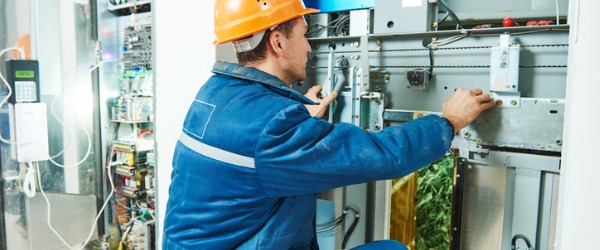What is a Millwright?
A millwright is someone who installs, dismantles, repairs, reassembles, and moves machinery in factories, power plants, and construction sites. Because they work in production facilities and construction sites, minor injuries such as cuts, bruises, and strains are common. They are typically employed on a contractual basis and may spend only a few days or weeks at a single site. As a result, workers often have variable schedules and may experience downtime between jobs.
Get online training through our partner:
What does a Millwright do?

Millwrights typically do the following:
- Read highly technical instructions and blueprints on machinery
- Install or repair machinery and equipment
- Adjust and align moving parts
- Replace defective parts of machinery as needed
- Take apart existing machinery to clear floor space for new machinery
- Move machinery and equipment
Millwrights are highly skilled workers. Putting together a machine can take a few days or several weeks. They need to have a good understanding of how the machine works so that they can repair it when it breaks down. Repair includes replacing worn or defective parts of the machinery when needed.
Millwrights may also be involved in taking apart existing machines, a common situation when a manufacturing plant needs to clear floor space for new machinery. Breaking down a machine is usually as complicated as putting it together. Each part must be carefully taken apart, categorized, and packaged for shipping.
Millwrights use a variety of hand tools, such as hammers and levels, as well as equipment for welding, brazing, and cutting. They also use measuring tools, such as micrometers, levels, measuring tapes, lasers, and other precision-measuring devices. On large projects, they commonly use cranes and trucks.
When millwrights and managers determine the best place for a machine, they bring the parts to the desired location using forklifts, hoists, winches, cranes, and other equipment.
What is the workplace of a Millwright like?
Most millwrights work in factories, power plants, or constructions sites. Many belong to a union. In a construction setting, workers must be careful of heavy equipment. They also may work in awkward positions, including on top of ladders, or in cramped conditions under large machinery, both of which add to their risk of injury. In production facilities, millwrights are subject to common shop injuries, such as cuts, bruises, and strains.
To avoid injuries, workers must follow safety precautions and use protective equipment, such as hardhats, safety glasses, steel-toed shoes, and earplugs.
Millwrights are also known as:
Industrial Maintenance Millwright
Precision Millwright
Journeyman Millwright
Certified Industrial Millwright